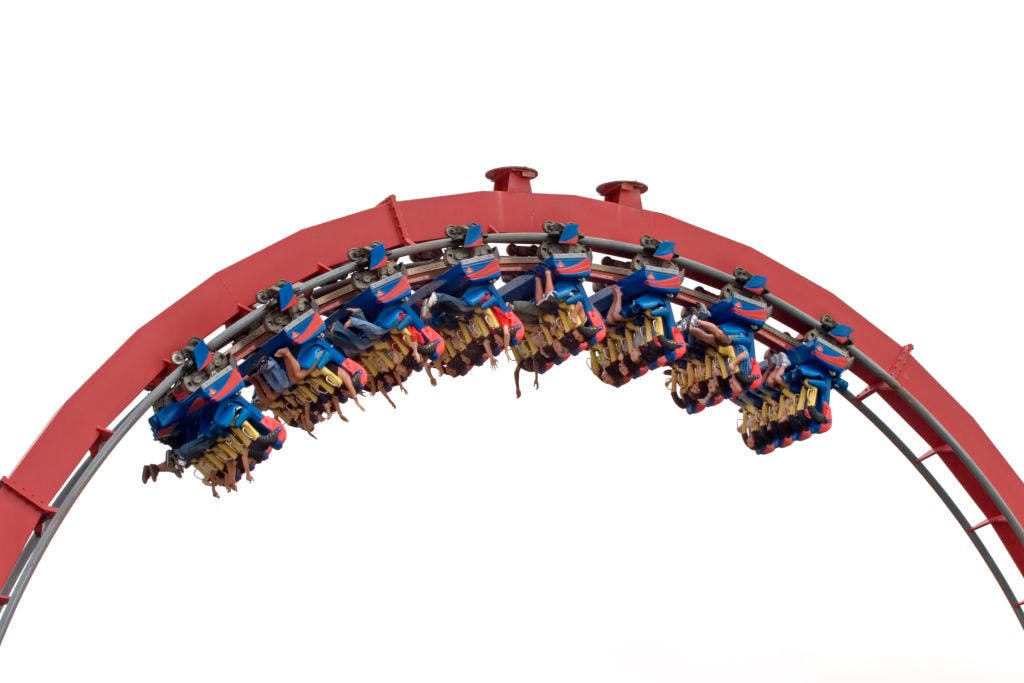How speculative tech stocks lost one-third of their value in the past month
If Oracle has credit risk now, some of that risk should also probably be reflected in the share prices of more speculative, volatile tech stocks.
Speculative stocks tied to the AI boom, quantum computing, and energy have tanked over the past month.
Among Oklo, D-Wave Quantum, CoreWeave, IonQ, Nebius, Cipher Mining, IREN, Rigetti Computing, Tempus AI, POET Technologies, Bloom Energy, Plug Power, and SoundHound AI, the average member has lost a third of its value since mid-October.
That’s a sharp pullback for a group of stocks that could seemingly do no wrong, with the average constituent nearly having tripled from the start of July through October 14.
Why and how did this happen?
A few overarching thoughts here:
First, the peak in speculative stocks came right around the time earnings season kicked off, a time when everyone takes out their pencils, dusts off their finest monocles, and casts a sharp eye on corporate fundamentals.
Per FactSet’s John Butters, 82% of S&P 500 companies reported a positive bottom-line beat and 77% reported a better-than-expected sales surprise in Q3.
One might reasonably think, “Why am I continuing to invest more in companies that have a cursory to nonexistent relationship with profitability when there are oodles and oodles of bigger firms whose operations are doing quite well?” To this point, I’ll add that the iShares MSCI USA Value Factor ETF is up about 6% since the average speculative stock peaked, well outperforming the S&P 500 over this period.
Secondly, a quantum-specific risk factor: bulls got rugged. Stars had seemingly been aligning toward more government support for the nascent industry, culminating in rumors about the Treasury Department taking stakes in leading pure-play firms, only for those reports to be contradicted and then disappear without a trace.
Third and most importantly: AI has credit risk now.
Oracle has now erased more than all the gains it made after reporting a massive pipeline of future demand, which was later revealed to be largely thanks to OpenAI.
Not only have shares tumbled, but credit default swap spreads have widened; that is, investors no longer think it’s as safe a bet to make good on its own debts. I suppose that’s what happens when you’re poised to go on a multiyear capital expenditure binge to build out physical infrastructure to meet orders from a customer that is currently incinerating cash and has more multibillion-dollar spending commitments than a consortium of octopuses has tentacles.
It’s a delicate dance: megacap tech companies are trying to use their good names (and their good money) to support the overall growth of the AI ecosystem, without exposing themselves to too much risk. For instance, Bloomberg’s Gowri Gurumurthy writes that investors are demanding a higher coupon for Applied Digital’s bond offering than similar offerings by Terawulf and Cipher because those companies are being backstopped by Alphabet, while Applied Digital is relying on CoreWeave as its key tenant.
When the question of, “Oracle will be able to pay me back, right?” enters your mind, that’s probably not consistent with a world in which smaller companies on the outskirts of the AI ecosystem, and other thematic plays within tech, can continuously be bid up to the moon.
In other words, if something might go wrong for an established megacap tech company, the market might shy away from pricing smaller players as if everything is bound to work out perfectly.
